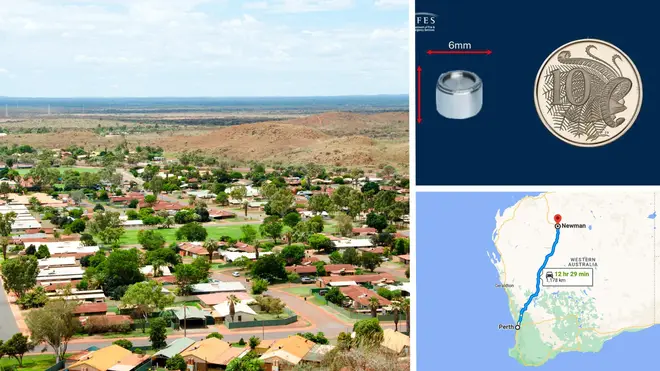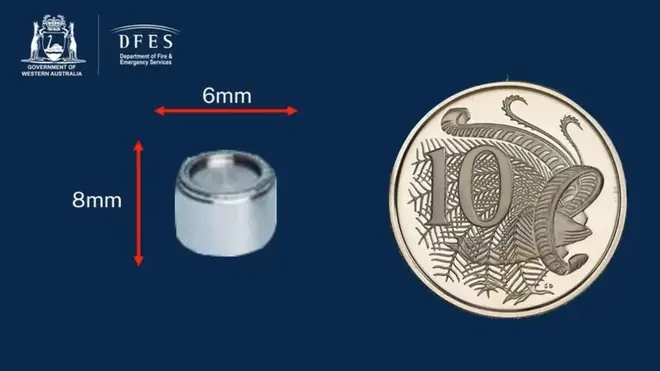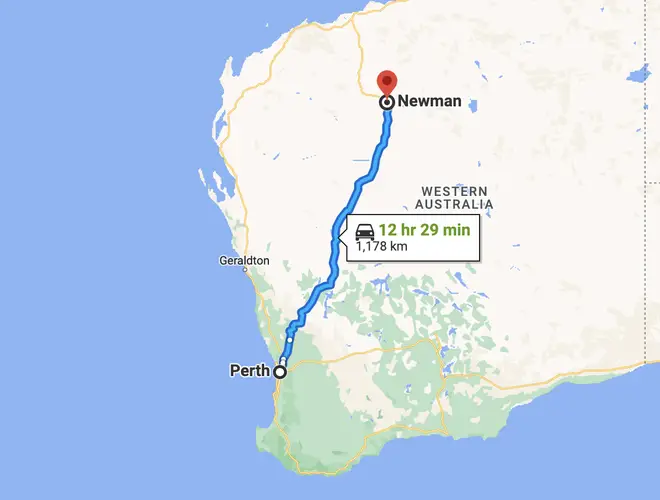
Nick Ferrari 7am - 10am
28 January 2023, 10:38 | Updated: 28 January 2023, 10:44

Experts are desperately trying to track down a dangerous radioactive capsule lost somewhere on an 870 mile stretch of road in Western Australia.
The casing contains a small amount of Caesium-137 and can cause serious illness if someone comes into contact with it.
It emits a "reasonable" amount of radiation. The capsule can't be weaponised but it could cause burns from that radiation, and it could cause other long-term problems like cancer.
The public has been warned to stay away from the tiny capsule, which measures 8mm by 6mm, if they come across it. Anyone who finds it has been asked to call Western Australia's Department of Fire and Emergency Services if they see it.
An image comparing it to a 10 cent coin was issued by the state's government.
Authorities say it was lost somewhere between Newman and Perth earlier in January, when it was taken by truck from a mine near the former. The substance is used in mining.


It was taken through the Pilbara region to north east Perth between 10 and 16 January. Experts are trying to narrow down the search on the vast territory between Newman and Perth.
"Our concern is that someone will pick it up, not knowing what it is. They may think it is something interesting and keep it, or keep it in their room, keep it in their car, or give it to someone," Dr Andrew Robertson, the chief health officer of Western Australia, said.